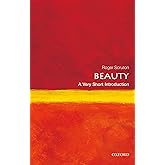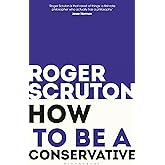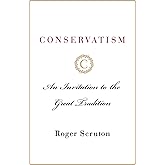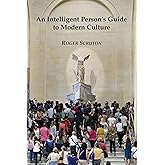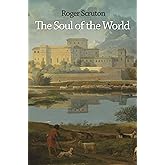
Download the free Kindle app and start reading Kindle books instantly on your smartphone, tablet, or computer - no Kindle device required.
Read instantly on your browser with Kindle for Web.
Using your mobile phone camera - scan the code below and download the Kindle app.



 Audible sample
Audible sample Fools, Frauds and Firebrands: Thinkers of the New Left Paperback – International Edition, January 10, 2017
A devastating critique of modern left-wing thinking from a leading political philosopher.
In Fools, Frauds and Firebrands, philosopher Roger Scruton, one of the leading critics of leftist orientations in modern Western civilization, examines the thinkers who have been most influential on the attitudes of the New Left. What does the Left look like today, he asks, and how has it evolved? Is there any foundation for resistance to its agenda without religious faith?
Scruton begins with a ruthless analysis of New Leftism and concludes with a critique of the key strands in its thinking. He conducts a reappraisal of such major left-wing thinkers as: E. P. Thompson, Ronald Dworkin, R. D. Laing, Jurgen Habermas, Gyorgy Lukacs, Jean-Paul Sartre, Jacques Derrida, Slavoj Zizek, Ralph Milliband and Eric Hobsbawm.
Scruton's exploration of these important issues is written with skill, perception and at all times with pellucid clarity. In addition to assessments of these thinkers' philosophical and political contributions, the book contains a biographical and bibliographical section summarizing their careers and most important writings.
- Print length304 pages
- LanguageEnglish
- PublisherBloomsbury Continuum
- Publication dateJanuary 10, 2017
- Dimensions5.37 x 0.91 x 8.4 inches
- ISBN-109781472935953
- ISBN-13978-1472935953
Book recommendations, author interviews, editors' picks, and more. Read it now.
Customers who viewed this item also viewed
Editorial Reviews
Review
"The book is a masterpiece, its rather too clever title notwithstanding. In crisp, sometimes brilliant prose, Mr. Scruton considers scores of works in three languages, giving the reader an understanding of each thinker’s overarching aim and his place within the multifaceted movement known as the New Left. He neither ridicules nor abuses the writers he considers; he patiently deconstructs them, first explaining their work in terms they themselves would recognize and then laying bare their warped assumptions and empty pretensions." ―The Wall Street Journal
"Scruton’s book is not the dispassionate examination and measured assessment of philosophical arguments typical of analytic philosophers. It is a polemical dissection and indictment of the perceived destructive aims and tactics of the left. Earlier chapters on Sartre and Foucault, and on members of the Frankfurt School, particularly Adorno, are the most engaging." ―Samuel Freeman, The New York Review of Books
"Eminent British philosopher and polymath Scruton gives a sharp-edged, provocative critique of leading leftist thinkers since the mid-20th century . . . complex and erudite." ―Publishers Weekly
"Caustic, highly recherché, and simply great fun to read for the questing intellectual soul." ―Kirkus Reviews
"[H]onestly assesses the political and philosophical contributions of the Left [and] addresses what is likely our most pressing question: ‘Can there be any foundation for resistance to the leftist agenda without religious faith?'" ―Catholic World Report
About the Author
Product details
- ASIN : 1472935950
- Publisher : Bloomsbury Continuum; Reprint edition (January 10, 2017)
- Language : English
- Paperback : 304 pages
- ISBN-10 : 9781472935953
- ISBN-13 : 978-1472935953
- Item Weight : 12 ounces
- Dimensions : 5.37 x 0.91 x 8.4 inches
- Best Sellers Rank: #1,569,742 in Books (See Top 100 in Books)
- #577 in Radical Political Thought
- #2,682 in Political Commentary & Opinion
- #4,755 in Political Philosophy (Books)
- Customer Reviews:
About the author

Roger Vernon Scruton, FBA, FRSL (/ˈskruːtən/; born 27 February 1944) is an English philosopher who specialises in aesthetics. He has written over thirty books, including Art and Imagination (1974), The Meaning of Conservatism (1980), Sexual Desire (1986), The Philosopher on Dover Beach (1990), The Aesthetics of Music (1997), Beauty (2009), How to Think Seriously About the Planet: The Case for an Environmental Conservatism (2012), Our Church (2012), and How to be a Conservative (2014). Scruton has also written several novels and a number of general textbooks on philosophy and culture, and he has composed two operas.
Scruton was a lecturer and professor of aesthetics at Birkbeck College, London, from 1971 to 1992. Since 1992, he has held part-time positions at Boston University, the American Enterprise Institute in Washington, D.C., and the University of St Andrews. In 1982 he helped found The Salisbury Review, a conservative political journal, which he edited for 18 years, and he founded the Claridge Press in 1987. Scruton sits on the editorial board of the British Journal of Aesthetics, and is a Senior Fellow of the Ethics and Public Policy Center. Scruton has been called "the man who, more than any other, has defined what conservatism is" by British MEP Daniel Hannan and "England’s most accomplished conservative since Edmund Burke" by The Weekly Standard.
Outside his career as a philosopher and writer, Scruton was involved in the establishment of underground universities and academic networks in Soviet-controlled Central Europe during the Cold War, and he has received a number of awards for his work in this area.
Bio from Wikipedia, the free encyclopedia. Photo by Pete Helme (http://www.rogerscruton.com) [CC BY-SA 3.0 (http://creativecommons.org/licenses/by-sa/3.0)], via Wikimedia Commons.
Customer reviews
Customer Reviews, including Product Star Ratings help customers to learn more about the product and decide whether it is the right product for them.
To calculate the overall star rating and percentage breakdown by star, we don’t use a simple average. Instead, our system considers things like how recent a review is and if the reviewer bought the item on Amazon. It also analyzed reviews to verify trustworthiness.
Learn more how customers reviews work on AmazonCustomers say
Customers find the book well-researched and insightful, with one review noting its compelling philosophical background. Moreover, the book receives positive feedback for its value and humor, with one customer describing it as a great account of Leftist/Marxist philosophy. However, the readability receives mixed reactions - while some find the prose clear, others note it's not always an easy read.
AI-generated from the text of customer reviews
Select to learn more
Customers find the book insightful and well-researched, providing an excellent overview of its subject matter.
"...landscape of representation and law resting on objective principles of individual human nature, individual freedom, acceptance of human imperfection..." Read more
"...It provides excellent summaries and analyses of the work of Dworkin, Foucault, Habermas, Derrida, Rorty, Deueuze, Gramsci, E. P. Thompson, Lacan,..." Read more
"...This is a great overview with more than a little depth of the neo-Marxist Post Modern school of *thought* which has infected all of academia in the..." Read more
"...fair (as fair as one can be under the circumstances), and deeply researched. Highly recommended." Read more
Customers find the book to be an important and worthwhile read.
"Incisive, erudite, accessible, and compelling! The best book I know of to introduce readers to recent events in literary theory, cultural..." Read more
"...I feel like Professor Scruton's wonderful book is a final step away from the craziness of our thinking at that time...." Read more
"...Scruton is a seriously well read and entertaining author...." Read more
"...defines university humanities departments today, this book will not disappoint, unless you buy into postmodernism and the philosophies of France..." Read more
Customers find the book's humor engaging, with one review highlighting its great account of Leftist/Marxist philosophy and another noting its remarkably fair treatment of those it criticizes.
"...of individual human nature, individual freedom, acceptance of human imperfection while striving for it, freedom to buy or sell your labor, goods or..." Read more
"Roger Scruton, a prominent British conservative philosopher, criticizes left-wing intellectuals—specifically, left-wing intellectuals who influenced..." Read more
"...book is essential for those who want two things: (1) a critical overview of new left thinking and (2) specific well-explained reasons why new left..." Read more
"...understandable and even humorous. It's hard to find cogent criticism of left wing ideology probably since the left dominates higher education/media...." Read more
Customers have mixed opinions about the book's readability, with some finding the prose clear but noting it's not always an easy read and not light reading.
"...Resting on sound philosophical research, his grammar, syntax, and diction are the results of immaculate conception...." Read more
"...Scruton himself is a good (not great) writer, and the book itself can be tedious reading because Scruton must quote the leftist verbiage...." Read more
"...This work unmasks the pretensions of the Left in clear, well-informed, literate prose...." Read more
"...Similarly, this book is not always an easy read, but it is well-written, fair (as fair as one can be under the circumstances), and deeply researched...." Read more
Top reviews from the United States
There was a problem filtering reviews. Please reload the page.
- Reviewed in the United States on July 21, 2017Power is Truth: The New Left Credo — Fools, Frauds, and Firebrands Review
July 9, 2017 First Published in The EC Journal
|
Mark McIntire
Fools, Frauds, and Firebrands, written by Roger Scruton, is precisely the book that every student of modern political science and/or economics should read. Even if you don’t know the difference between a ‘dialectic’ and a ‘praxis,’ your lack of deep philosophical literacy will not impede the read. With tong and scalpel, Scruton offers the reader a narrative answer to a simple question. How did the very core idea of Western culture and law change from individual natural rights, seeking only truth, to contrived group rights, seeking only power?
Scruton wants one's inference to tumble out of these pages at the end. Fake news, identity politics, corporate shame, the evil 1%, globalism, Black Lives Matter, LGBTQ+, ANTIFA, and now our shooting cultural war all stem from the clever theology of group rights ordained by German theologian Karl Marx. With relentless surgical precision, philosophy professor Roger Scruton peels away layers of decayed Marxian mumbo-jumbo by later day acolytes from Sartre to Habermas, from Dworkin and Deleuze, to Lucan and Zizek, in his book Fools, Frauds, and Firebrands. Even JFK’s pet economist, John Kenneth Galbraith gets a good waxing.
Originally published in 1985 as simply Thinkers of the New Left before the collapse of the old Soviet Union, this iteration of Scruton’s communist autopsy drills down to the core presumptions of communism’s decrepit corpse. Resting on sound philosophical research, his grammar, syntax, and diction are the results of immaculate conception. If you crave French nuanced literary criticism, then this book is not for you. If, however, you crave a road map of the intellectual car crashes that led us to our common social fatality, then, by all means, get this book.
Though brutal in his exorcism of Marxian devils, Professor Scruton takes patient pains to give both substance and style credit where credit is due. In this, he demonstrates more character virtue than the far-left academics who vindictively purged him from his university teaching and writing career.
But ‘Old Left’ Communism did not die at the hands of ‘Iron Lady’ Margaret Thatcher, ‘Solidarity’ inspired Pope John Paul II, and Ronald Reagan’s ‘Star Wars’. Indeed, it merely rebranded thanks to the zealous priesthood of the ‘New Left’ Marxists in Europe and America. Fools, Frauds, and Firebrands, is the intellectual chronicle of those seminary and post-ordination days for that priesthood. One subtext of this work is the strong evidence that last century’s Marxian theology has become this century’s New Left religion. These postulants, scholastic monks, and deacons insinuated themselves into contemporary politics as revolutionary socialist bishops, cardinals, and even a Pope in the person of rabid atheist Richard Dawkins. Antonio Gramsci is their martyred saint who rotted away in Mussolini’s prison as public enemy number one of the Roman Catholic Church. This communist priesthood created a socialist workers society very much like the bourgeoisie society they waged jihad to destroy, unsuccessfully as it turns out.
Limited space here does not permit dragging the reader over the alpine philosophical mountains Scruton climbs in this work, but a few passages are intelligible to any educated reader conscious of the changes in our contemporary politics. One of those is Scruton’s meticulous documentation of how modern fascists and communists have much in common despite their obvious differences in this passage:
“Communism, like Fascism, involved the attempt to create a mass popular movement and a state bound together under the rule of a single party, in which there will be total cohesion around a common goal. It involved the elimination of opposition, by whatever means, and the replacement of ordered dispute between parties by clandestine ‘discussion’ within the single ruling elite. It involved taking control – ‘in the name of the people’ – of the means of communication and education, and instilling a principle of command throughout the economy. Both movements regarded law as optional and constitutional constraints as irrelevant – for both were essentially revolutionary, led from above by an ‘iron discipline.’ “
Readers can glean from this sample, Scruton’s content, style, and comprehensive intellect.
After warning the reader that ‘this is not a word-mincing book’ in the terse introduction, Professor Scruton front-loads a strong thesis, to wit, “Liberation and social justice have been bureaucratized.” It’s not so much the clever dialectical pretzel of Marx that is responsible as much as it’s those who hijacked it for raw, brutal, murderous power. The rest of the book is a series of premises in the form of chapters deductively and inductively hammering home that conclusion with erudite blows of scholarship. This thesis is reiterated near the end as:
“To put the point another way: the Marxist theory of history, which explains all historical development as the product of changes in the economic infrastructure, is false. Historical development is as much the outcome of political will (as our ‘bourgeois’ historians have always insisted) as the outcome of ‘material’ processes.”
While acknowledging that some fascist governments were democratically elected, all Communist governments came to power by the coup d’etat (i.e. murder and mayhem). Best available estimates today on the number of humans murdered by the communist intellectual great, great grandchildren of Karl Marx range from 170 to 200 million.
Like some erudite tour bus driver, Scruton drives the reader around the intellectual wasteland of ‘group think’, ‘Orwellian Newspeak’ the ‘nonsense machine’ invented by Louis Althusser, and Gilles Deleuze, the scorched-earth attack on our ‘colonial’ inheritance by Edward Said, and the recent revival of ‘the communist hypothesis’ by Alain Badiou and motor mouth Slavoj Žižek. The intellectual landscape resembles something like Hiroshima after the bomb. Around every corner are burned out conceptual buildings of law, tradition, custom, enterprise, family, or religion, all made from the same atomic accelerant — the irrepressible individual human will for individual freedom nurtured by the false bourgeois society.
Scruton’s tour bus struggles mightily up the steep hill of Jürgen Habermas, the German intellectual and relentless theorist of the ‘public sphere’ (‘group-think’ in America) only to fall back down again exhausted. Like Sisyphus trudging after his boulder, Scruton only takes pleasure in his descriptions of Marxian ‘nonsense’ by accepting them as nonsense. The tour bus even has a stop at a bombed out psychiatric clinic where French intellectual fraud Louis Althusser died after strangling his wife to death. He claimed she was a Marxist ‘revisionist.’ Can’t have that now, can we?
Thus, the odd post-Marxian creatures Sir Scruton details for us constitute part zoo, part theme park, part waterboarding torture chamber, and part Cambodian killing field. There’s something for every political fetish here in Fools, Frauds, and Firebrands. Near the end of the book, special ridicule is reserved for the New-Left’s canonized saint, Italian firebrand Antonio Gramsci who wrote his most potent social poison in prison.
“There is another reason for Gramsci’s canonization, however. He provided the theory that promised both to solve the problem of ‘so-called great men’, and also to establish the intellectual’s right to govern. In The Modern Prince and other writings from his prison years he moved on from Leninist sloganizing and devoted himself to the task of reconciling the Marxist theory of history and society with a philosophy of political action. Gramsci referred to his theory as ‘the philosophy of praxis’, and developed it in opposition to the ‘vulgar materialism’ of Bukharin.”
It may be that the matter/spirit dialectic that Hegel twisted into a transcendental pretzel actually is the poison tree of modern western philosophy and its cultural fruit. It may be right and proper that Marx tried to chop it down. Sir Scruton will have none of that balderdash, tommyrot, eyewash speculation. Ultimately, that is the major defect in the two hundred and eighty-eight pages of this seductive decapitation of the Marxian ‘nonsense machine.’ But if that is the only defect in Fools, Frauds, and Firebrands, then we can cut Scruton some slack. After all, there’s just so much turgid nonsense a philosopher can wade through in a single book.
One final matter of some importance. In the last two chapters, 9 and 10, Professor Scruton correlates New Left’s Marxian religion with today’s constant upheaval, by balkanized mobs demanding special rights rather than equal rights. If you can’t quite imagine why these eternal dissenters, itinerant protesters, occupiers of streets, buildings, bridges, and universities cannot be appeased or mollified, then you haven’t analyzed Žižek.
Today, the default political correctness requires the intellectuals and workers to unite and ‘stand up’ for x, y, or z. It really doesn’t matter what cause x, y, or z reference, just as long as law and society is disrupted, resisted, and hopefully destroyed completely making way for a classless, genderless, Godless, workers’ paradise. Scruton illuminates the cause. It’s the constant state of ‘revolution’ of ‘us’ (the 99%) against ‘them’ (the 1%) necessary to destroy the capitalist bourgeoisie society that created them, educated them, and trusted them to seek truth. Instead, there is a ’constant struggle’ for only power since there is no other ‘truth.’ Might makes ‘right,’ and the only thing that matters is are you on the ‘right’ side of the revolution to overthrow the enslaving bourgeoises.
“Repeatedly in what follows we will encounter the Newspeak of left-leaning thinkers. Where conservatives and old-fashioned liberals speak of authority, government and institutions, those on the left refer to power and domination. Laws and offices play only a marginal part in the left-wing vision of political life, while classes, powers and the forms of control are invoked as the root phenomena of the civil order, together with the ‘ideology’ that mystifies those things and rescues them from judgement. Newspeak represents the political process as a constant ‘struggle’ concealed by fictions of legitimacy and allegiance. Peel away the ideology, and the ‘truth’ of politics is revealed. The truth is power, and the hope of deposing it.”
In “What is Right?,” the final chapter, Sir Roger answers the obvious criticism that any intelligent reader has been mulling for the prior 273 pages. With his blistering refutation of those Marxian priests that have taken perpetual vows to tear down society, has not Sir Roger become just like them offering nothing positive and only negative complaints? To say that he rises to the challenge would be an injustice. In quick bold brush strokes, Scruton paints the vibrant, textured landscape of representation and law resting on objective principles of individual human nature, individual freedom, acceptance of human imperfection while striving for it, freedom to buy or sell your labor, goods or services, freedom to join a group or not, freedom to organize a union or fund a corporation, freedom to worship a God if you will it, freedom to risk with potential for reward, freedom to enjoy the prospect of success and/or failure at the mercy of reality, truth, goodness, and beauty.
The reader can actually read just that last chapter and still drink the deep waters of philosophical wisdom between the covers of this book. It remains one of the only works in print which defends the notion that our individual life of ideas in not the sole province of the New Left apostles in the academy. He may be right, but not by half.
Prof. Mark McIntire
Contributor
Professor Mark McIntire teaches philosophy at Santa Barbara City College and publishes acerbic criticisms as The Meddlesome Priest. He also hosts a weekly radio program Minds That Matter on AM 1290 KZSB. His e-text Reason Argue Refute: Critical Thinking About Anything is available in all digital formats from Amazon and on Apple iBooks
- Reviewed in the United States on February 5, 2016Incisive, erudite, accessible, and compelling!
The best book I know of to introduce readers to recent events in literary theory, cultural relativism, and the intellectual history of the twentieth century. This work unmasks the pretensions of the Left in clear, well-informed, literate prose. It provides excellent summaries and analyses of the work of Dworkin, Foucault, Habermas, Derrida, Rorty, Deueuze, Gramsci, E. P. Thompson, Lacan, Marx, Freud, and others. Useful, valuable, necessary. The discussion on pp. 200-201 of the affinities between communism and fascism is worth the price. For anyone interested in the history of capitalism, socialism, political economy, and the academy in the last one hundred years, this book is a must-read. It is a work not of critique only but more importantly of affirmation. It will give you new confidence as a member of bourgeois society and a participant in democratic capitalist society, with all its crucial mediating institutions and treasured little platoons.
- Reviewed in the United States on October 24, 2020
4.0 out of 5 stars Great Critique of Continental Nonsense, But Does Not Engage With Analytic Leftism
Roger Scruton, a prominent British conservative philosopher, criticizes left-wing intellectuals—specifically, left-wing intellectuals who influenced or were influenced by the "New Left" movement of the late-1960s. Scruton shows that many prominent left-wing intellectuals—Sartre, Luckas, Habermas, Althusser, Lacan, Deleuze, Badiou, Zizek—spend most of their time spewing jargon-laden gibberish, with this gibberish serving a political goal: it assaults the ideals of the Enlightenment and paves the way for the horrors of left-wing totalitarianism. Behind the rhetoric of emancipation, these New Left thinkers are merely the pampered, privileged, Ivory Town side of the totalitarian coin. Meanwhile, on the the other side of this coin the heroes of the New Left—Stalin, Mao, Pol Pot—carry out mass atrocities, slaughtering and starving tens of millions of Asian peasants.
Scruton himself is a good (not great) writer, and the book itself can be tedious reading because Scruton must quote the leftist verbiage. But that is not Scruton's fault, and his own writing is clear.
I deduct 1-star because Scruton is dismissive of analytic leftism. On page 2 of the 2019 edition, Scruton criticizes Noam Chomsky's "intemperate denunciations of America." However, on page 193, footnote 60, Scruton praises Chomsky as "a radical leftist with a genuinely scientific mind" who has given a "powerful demolition of the [New Left] nonsense machine." Curiously, this reference is not listed in the "Chomsky" section of the Index. On that same page, Scruton criticizes another left-wing scientist and demolisher of New Left nonsense, Alan Sokal. Yet Scruton also notes throughout the book that the Canadian philosopher G.A. Cohen has articulately and intelligently defended the Marxist conception of history. Scruton's own arguments would be elevated if he took on the analytic left. The fashionable nonsense of the New Left is easy to criticize and condemn, but the critiques of the modern West given by thinkers such as Chomsky deserve a fair hearing.
Top reviews from other countries
 atfReviewed in Germany on October 16, 2022
atfReviewed in Germany on October 16, 20225.0 out of 5 stars Admirable!
Very enjoyable reading, if you are sympathetic to Scruton's concerns. If not, you'll hate it -- which goes to show how admirable a polemicist Scruton is.
-
 Giovanni PallaviciniReviewed in Brazil on March 5, 2016
Giovanni PallaviciniReviewed in Brazil on March 5, 20165.0 out of 5 stars Fools, Frauds and Firebrands: Thinkers of the New Left
Excelente obra para quem não se dobra às pressões da esquerda, a qual conseguiu o " monopólio da verdade e justiça " , apesar de semear cerca de CEM MILHÕES DE CADÁVERES no Século passado aonde deteve o Poder.
Recoloca de forma o mais clara possível as contradições e incongruências que servem de alicerce para seu edifício de absurdos lógicos nunca respondidos por seus devotos, ou no máximo colocados de lado desqualificando quem questiona estes erros e omissões.
Espero ler outras obras do Autor em breve.
Como única crítica acho que a Obra em pauta poderia ser melhor dividida em capítulos mais breves, ou os capítulos serem subdivididos de forma mais didática para o leitor menos afeito a trabalhos acadêmicos.
Este livro PRECISA ser lido por todos que querem entender como funciona a Política moderna.
 a readerReviewed in the United Kingdom on November 26, 2015
a readerReviewed in the United Kingdom on November 26, 20155.0 out of 5 stars A very important book. You should read it.
I feel hugely grateful to Scruton for writing this excellent book - and for doing all the reading and research that made it possible. I would in no way describe it as a polemic as one reviewer here does. Scruton works extremely hard to make as much sense as possible of the various left-wing thinkers that are his subject-matter. Some of them (e.g. Thompson and Hobsbawm) express themselves perfectly clearly. These are by far the easiest to argue against, and Scruton easily demolishes their somewhat desperate attempts to redeem Marx and Marxism. Others (e.g. Althusser, Lacan, Badiou, Zizek) have produced some of the most tortuous and labyrinthine writings imaginable - some of which are clearly intended to be incomprehensible. At times I felt that Scruton was, if anything, in danger of going too far and colluding with some of these writers, by accepting too much on their terms - their terminology, their language (especially in the case of Sartre). And yet, it's only by penetrating quite a long way into some of the most seemingly impenetrable stuff imaginable, that you can really expose it for the utter nonsense that it is. So I'm sure Scruton is right to explore these dark caves to their murky depths. But you have to be pretty heroic to be willing to do it. That said, I found the book a surprisingly good read. Scruton has a clear and enjoyable style, and if the subject matter is hard-going at times, Scruton is a very good guide, taking us through it.
Some of the really weird 'thinkers' he looks at are very remniscent of cult leaders (think of Scientology perhaps, or the ravings of Jim Jones of Jonestown) in the way they weave language like spells to confuse and entice their followers, and refuse to submit their ideas to anything remotely resembling intelligent argument. You might say - if they're like that, why b`other? The reason it is well worth bothering with, is that the people that Scruton is very effectively demolishing, are hugely influential in our world, our culture, and our universities, today.
I would very strongly recommend this book to anyone who considers themselves a thinker - especially in relation to politics and the modern world. Every conservative should certainly read it - but I suspect left-wingers would also find it extremely helpful too (not to mention challenging of course). Scruton brings clarity and sense to (in some cases at least) a world of mysticism, darkness and confusion.
 Thomas BilneyReviewed in Australia on October 23, 2020
Thomas BilneyReviewed in Australia on October 23, 20205.0 out of 5 stars One of the most important ripostes to modern thinking
This is a book which should be standard reading for any educated person. Without an understanding of the intellectual currents which came to dominate the twentieth century, it is impossible to unpick the current mess the world has got itself into. Scruton writes beautifully and with great clarity about the totalitarian spirit inherent within the deepest doctrines of leftist thinking. This book will illuminate you in many ways, but it may render you, in Coleridge's words, 'a sadder and a wiser man'.
 Hampton DewdropReviewed in Spain on June 29, 2024
Hampton DewdropReviewed in Spain on June 29, 20245.0 out of 5 stars Essential Scruton, but only for the experienced.
This is not a casual introduction to Roger Scruton's thinking and requires a solid knowledge of modern thought and philosophy.







